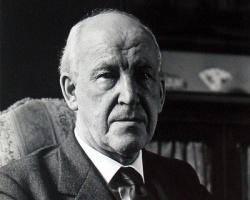 Polemics – Definition: a strong verbal or written attack on someone or something.
Polemics – Definition: a strong verbal or written attack on someone or something.
Article: Doctor’s Orders: Lloyd-Jones on obsession with polemics (original source here)
The polemic element is of course important and it has its very definite place; it is good for the people. But I’m warning now against the danger of too much polemic. And I think this will be the danger when most of you begin. You’ve been struggling with rival theories and heresies and things of this description, and your mind is naturally full of this. But I say be careful that you don’t have too much of this. Why? Well the people, the bulk of the people to start with are probably not interested. A large number of them don’t even understand. Remember that, there are such people. Now I’m saying there’s a place for it; I’m saying that there mustn’t be too much. And of course you’ve always got a certain number in the congregation who are too interested in polemics and it’s very bad for them of all the people. They’re the people who will travel miles in order to hear a slashing attack on a man, on a theory, or all the rest of it. And as you know, men who are always polemical generally get a good hearing and generally get good collections also. But this is a real snare. Now I’m so concerned about this because I’ve seen good men ruined in this way, and I’ve seen good ministers ruined. I’ve seen great preachers ruined, I think, by this.
Shall I tell you about a discussion I once had with one of them, but I’m not going to mention his name? But he was one of the greatest of these polemical preachers, and I had the privilege of spending the day with him many years ago, and we got on to this theme, we got on to it through his asking me a question.
He said “Do you read Joseph Parker?” (This was a great preacher in London until about nineteen hundred and one, and he published great volumes of sermons, The People’s Bible.) He said, “Do you read Joseph Parker?”
I said, “No I read very little of Joseph Parker,” and he was amazed at this.
He said “I read Joseph Parker every Sunday morning, always, always read Joseph Parker before I go to church on Sunday morning. He puts me right you know, Joseph Parker. Old Parker,” he said, “was wonderful, I can’t tell you how I enjoy reading old Parker making mincemeat of those modernists of his age and liberals.”
Which gave me my opportunity. I said, “Well you know,” I said, “I must confess that doesn’t appeal to me. What exactly did Joseph Parker achieve after he’d made mincemeat of these people?” Well that set us off and we had this great discussion, and I remember now it went on for the whole day. But I only remember three points of the discussion which I’m repeating to you because I trust they’ll be of some help to you.
He at one point said to me, “Now but look here,” he said (I was suggesting to him, I was trying to appeal to him that he was ruining his great ministry by having these tirades every Sunday night in particular, either on some teaching, it was very often Roman Catholicism, or even on some persons; they were brilliantly done, but I was trying to suggest to him it was ruining his ministry) But he said, “You’re unscriptural.” He said, “Let me remind you,” he said, “that the Apostle Paul tell us in Galatians 2, that when Peter went astray the apostle withstood him to the face.” He said, “That’s all I’m doing, I’m doing what Paul did. Surely this is right!”
To which I replied, I said, “Yes, I know that Paul does this, that he did that,” but I said, “I am interested in the result. I noticed that the result of Paul’s dealing with Peter and tackling him face to face at Antioch was that he persuaded Peter that he was wrong and won him to his position. And Peter later on in life expresses his great admiration of the Apostle Paul and his writings. Can you say the same about the people whom you attack?” Continue reading
